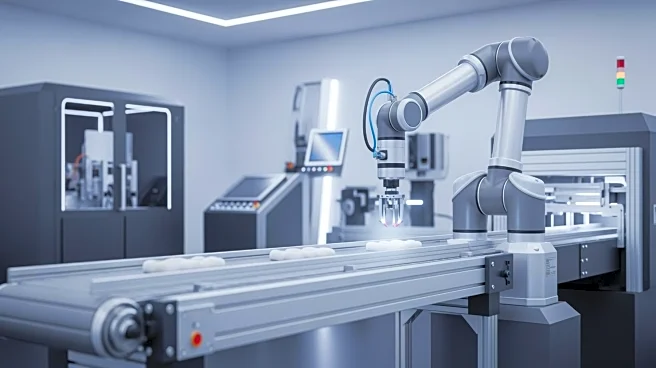What's Happening?
A recent article emphasizes the importance of process improvement as a precursor to successful HR automation. It highlights the pitfalls of automating broken processes, which can lead to inefficiencies
and new forms of waste. HR leaders are advised to document existing processes, identify areas for improvement, and redesign workflows before implementing automation. The article outlines a five-step framework for process improvement, including process mapping, risk analysis, and stakeholder engagement. By aligning automation with improved processes, organizations can enhance efficiency and support long-term value creation.
Why It's Important?
The insights provided in the article are crucial for organizations looking to leverage automation to streamline HR functions. By prioritizing process improvement, companies can avoid common pitfalls associated with automation, such as duplicative workflows and inconsistent practices. This approach not only enhances operational efficiency but also supports strategic goals by freeing up HR staff to focus on more value-added tasks. As automation becomes increasingly prevalent in HR, the emphasis on process improvement could influence industry standards and best practices, driving innovation and competitiveness.
What's Next?
Organizations may begin to invest in process management training and tools to support their automation initiatives. As HR teams become more adept at process improvement, they may explore opportunities to automate additional functions, such as recruitment and employee engagement. The focus on process improvement could also lead to collaborations between HR and IT departments, fostering a holistic approach to automation that integrates technology with human-centric processes. As companies refine their automation strategies, they may set new benchmarks for efficiency and effectiveness in HR operations.
Beyond the Headlines
The article underscores the broader implications of automation for workforce dynamics, highlighting the need for change management and stakeholder engagement. As automation reshapes HR functions, it may prompt discussions on the ethical considerations of technology in the workplace, such as data privacy and employee autonomy. The emphasis on process improvement also reflects a cultural shift towards valuing efficiency and innovation, which could influence organizational priorities and leadership strategies.









